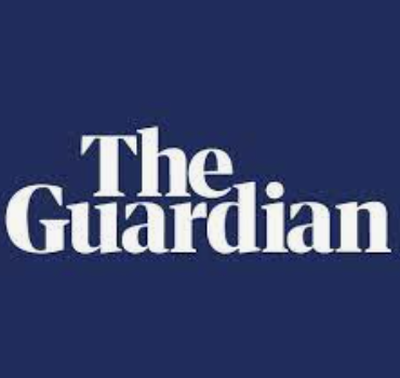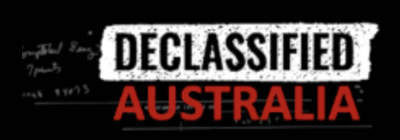Subimperial Power
Australia in the International Arena
Subimperial Power
Australia in the International Arena
Australia in the International Arena
Australia in the International Arena

Review: Subimperial Power by Clinton Fernandes
As tensions run high between China and the us, Australia occupies a unique position in international affairs. A long-standing and enthusiastic member of the American sphere of influence, Australia’s economy is dependent on Chinese markets to fuel its own growth models. In 2022, the demands of Chinese steel production led to the purchase of 736 tonnes of Australian iron ore—80 per cent of Australia’s national export, amounting to A$124 billion in national income ($83 billion). This mutually advantageous trading relationship has posed little obstacle thus far for Australia’s ever-tightening alliance with the United States, a relationship that in 2021 culminated in the signing of the aukus security treaty between Australia, the uk and the us, at the heart of which is a deal to help Australia acquire a new fleet of nuclear-powered submarines equipped with long-range land attack Tomahawk missiles. This and a slew of other trilateral security arrangements have been pitched as a necessary response to China’s military build-up and its naval activities in the South Pacific, an argument repeated unceasingly across both benches of the Australian Parliament and in the press. Despite the far-reaching policy shifts that aukus heralds—the end of the country’s anti-nuclear settlement, a costly escalation in militarization and a forthright policy of containing the country’s main trading partner—few commentators have been willing to identify and interrogate the broader political dynamics that underpin it.
New Left Review
Australia the 'subimperial power'
A new book 'Subimperial Power - Australia in the International Arena' argues Australians ought to be told what our relationship with the United States is really about: a relationship where we eagerly and routinely act to help the US keep its imperial position at the apex of global power. Iraq, Afghanistan and now AUKUS - the book argues Australians have been kept in the dark as to the real motivations behind these consequential decisions.
ABC Radio National
Why Australia still puts our interests behind America’s
In June 2021, chief of the Defence Force General Angus Campbell appeared before parliament to take stock of Australia’s longest war, the 20-year mission in Afghanistan. He assured parliament that the Australian Defence Force had “helped to improve the security of millions of Afghans”. He confidently dismissed claims that the Taliban would overrun Afghanistan once NATO and its allies left. “This is very much going to be a negotiated settlement,” he said.
The Australian
Aukus will lock in Australia’s dependence on US, intelligence expert warns
Clinton Fernandes argues in provocative new book the security pact will make it impossible to have an independent defence policy. The Aukus deal will lock in Australia’s dependence on the US and make it impossible to have an independent defence policy, a former Australian army intelligence officer has warned.
The Guardian
SECRECY AND EMPIRE
Under the guise of protecting the national interest, Australia’s security establishment acts in secret to uphold the global US-led imperial order. The secrecy surrounding Australian foreign and defence policy protects planners from the public that elected them. The war in Afghanistan offers ample evidence. The United States and Australia carried out an assassination campaign against the tactical leadership of the insurgency. Known as the Joint Prioritized Effects List (JPEL), it is an intelligence-driven assassination program enabled by drones and special forces. The dynamic involves assassinating insurgents without dealing with the root causes of the insurgency. Some Australian forces participated in this assassination campaign, which was known by various euphemisms.
Declassified Australia
The Grapevine: How Exactly Does Australia Operate In The World?
What is Australia’s role on the global stage? Are we a ‘middle power’, a country that independently provides balance in our region and upholds a ‘rules based order’, or are we really a Subimperial power? That’s the question at the heart of Professor Clinton Fernandes’s new book, Subimperial Power: Australia in the International Arena. He contends that Australia actively partakes in the act of imperialism – as a subservient vassal to the United State’s own agenda. Clinton chats with Dylan and Kulja from The Grapevine and breaks down the big taboo in Australian culture - that we don’t want to acknowledge the reality of our relationship with the United States and our place in the international arena. “The terrifying fact is the United States is an imperial power and you can’t say that… it harms Australia in some ways and it benefits Australia in others…. We’re a wealthy country but a dependant one”.
3RRRFM
THE WOLVADOODLES: A REVIEW OF SUB-IMPERIAL POWER
Of all the recent failures of the Australian mainstream media, the failure to properly report and analyse the trilateral security partnership known as AUKUS must surely qualify as the most pitiable. Just two weeks after US forces pulled out of Afghanistan, abandoning the country to the very movement it had identified twenty years earlier as an existential threat to global security, and less than one year after the United States itself had almost delivered a second term to an erratic man-baby with a wrecking-ball ego, the Coalition government pinned Australia’s colours more decisively than ever to the US mast, while also flagging de facto changes to its anti-nuclear settlement in the shape of an agreement to acquire eight nuclear-powered submarines equipped with long-range land-attack missiles.
ARENA
EMPIRE’S UPHOLDER
His latest work, Subimperial Power, is the most theoretical to date. Its aim is to define Australia’s structural location within the inter-state system. The conventional description of the country as a ‘middle power’, Fernandes argues, offers little explanation, neither for Australia’s unique economic configuration nor the patterns of its military-force projection—nor, indeed, the domestic political structures that enable these.
New Left Review